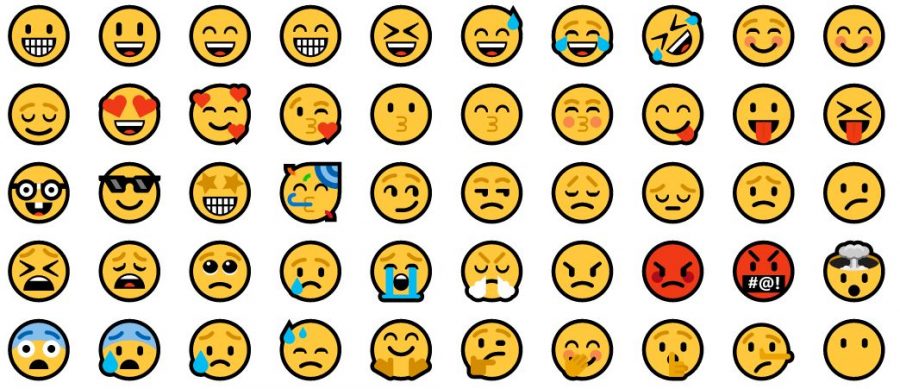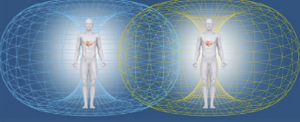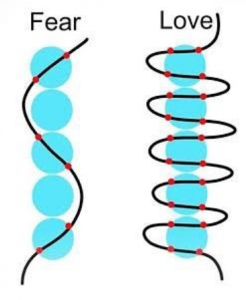One of the conditions in modern societies that often contributes to stress and anxieties is feeling insecure, threatened, or unsafe. There are many other factors to stress, anxiety and emotional disturbances. But, I want to address issues close to my heart; intrapsychic safety and security. I want to specifically address feeling unsafe and insecure.
Feeling unsafe intrapsychically will inevitably convert to maladaptive behaviours and compulsivity. Feeling insecure intrapsychically often lead to a lack of confidence in one’s own abilities and skills and distrustful of others, and the world.
 Generally, feelings are my friend, and I have made acquaintances with almost all of my emotions. I had come to accept feelings and emotions as a part of my experiences to be felt. I had embraced and incorporated feelings and emotions within my being. I have also allowed myself to mindfully and consciously express the feeling felt. I had even released inherited, trapped and preconception emotions, as well as unblocking heart-wall emotions. I had healed compound and post-traumatic emotional reverberation too. But, as an empath, I had learned the hard way how my feelings can still affect me, and most importantly, how other people’s emotions also impacted me. I had occasionally absorbed other people’s emotional resonances, and I had allowed that to affect me.
Generally, feelings are my friend, and I have made acquaintances with almost all of my emotions. I had come to accept feelings and emotions as a part of my experiences to be felt. I had embraced and incorporated feelings and emotions within my being. I have also allowed myself to mindfully and consciously express the feeling felt. I had even released inherited, trapped and preconception emotions, as well as unblocking heart-wall emotions. I had healed compound and post-traumatic emotional reverberation too. But, as an empath, I had learned the hard way how my feelings can still affect me, and most importantly, how other people’s emotions also impacted me. I had occasionally absorbed other people’s emotional resonances, and I had allowed that to affect me.
 Feeling unsafe and insecure are intrapsychic emotions. They are the core woundings from a less than ideal early environment in childhood. But, we do not have to let the past define the present or the future. These feelings often stemmed from inconsistency, chaotic and dismissive attachment patterns from our caregivers. But, they are not to blame because they too were the victim of their core woundings.
Feeling unsafe and insecure are intrapsychic emotions. They are the core woundings from a less than ideal early environment in childhood. But, we do not have to let the past define the present or the future. These feelings often stemmed from inconsistency, chaotic and dismissive attachment patterns from our caregivers. But, they are not to blame because they too were the victim of their core woundings.
Feeling unsafe arises when our external environment was hostile and threatening. A child may feel unsafe when their sense of self is physically or emotionally threatened. A child will also feel unsafe, lonely and abandoned when the caregiver is absent or when she is left alone for an extended period. If there is no one to mirror our being, we can lose sight of our beingness. The experiences can trigger body-memory retention, and their physiological response is usually a hypersensitivity to threats in the exterior world. Their fight/flight/freeze response is constantly on the alert and they are hypervigilant to fearful arousal. Imagine the toll this has on the body when it is permanently on alert.
 Feeling insecure, succeed feeling unsafe. When feeling insecure, a child feels awkward and inadequate in their abilities, skills and resources. The child lacks confidence, have doubts and distrusts themself, others and the world. Thus, the child will grow up to seek validation from the exterior world, thinking it would soothe their inner sanctum. When we are insecure about ourselves, we compensate for the lacking by constantly looking for ways to feel safe and secure. We also compensate by avoiding situations or people, and we may become controlling, adopting perfectionistic traits, or have obsessive-compulsive behaviours. We will often look for what is missing within outside of ourselves. We do this by collecting (material) things, including having people around us that makes us feel good. Unfortunately, we will not fully soothe that void looking externally when our intrapsychic world is unsafe.
Feeling insecure, succeed feeling unsafe. When feeling insecure, a child feels awkward and inadequate in their abilities, skills and resources. The child lacks confidence, have doubts and distrusts themself, others and the world. Thus, the child will grow up to seek validation from the exterior world, thinking it would soothe their inner sanctum. When we are insecure about ourselves, we compensate for the lacking by constantly looking for ways to feel safe and secure. We also compensate by avoiding situations or people, and we may become controlling, adopting perfectionistic traits, or have obsessive-compulsive behaviours. We will often look for what is missing within outside of ourselves. We do this by collecting (material) things, including having people around us that makes us feel good. Unfortunately, we will not fully soothe that void looking externally when our intrapsychic world is unsafe.
When I feel unsafe going someplace new, I used to make sure that I was early to the event. I would make sure that I arrived at least half an hour before the meeting to have time to settle down and relaxed. This behaviour allows me to feel like I was in control and it was a way of alleviating the discomfort, rather than looking at what was the cause. My strategy was to find ways to have control of situations or events. It was a strategy that worked for a time. Eventually, I had to look within to self-soothe.
In the perpetual cycle of self-fulling prophecy, a person seeks ways to feel safe and secure when feeling unsafe and insecure. However, you can find a way to self-soothe and settle the insecurity within the psyche. Here’s the good news. There are ways in which you can help yourself.
Here are some of the tools and techniques to help you build confidence, esteem and worth. They worked for me and I hope that they work for you too.
- Make time for Self-care
 Always put yourself first, you matter the most! This is not a selfish thought, but rather a self-care process. You have to look after number one (YOU). You have to move past caring for others first. Undoubtedly, we were conditioned to be considered, to be nice, to be kind to others. We were told to think of others, to be helpful and to be thoughtful of others. We were taught to believe that it matters what others think about us. But, in so doing, we neglected our own needs and care. I certainly thought that if I was helpful, nice and kind, somehow, I would feel safe in being altruistic.
Always put yourself first, you matter the most! This is not a selfish thought, but rather a self-care process. You have to look after number one (YOU). You have to move past caring for others first. Undoubtedly, we were conditioned to be considered, to be nice, to be kind to others. We were told to think of others, to be helpful and to be thoughtful of others. We were taught to believe that it matters what others think about us. But, in so doing, we neglected our own needs and care. I certainly thought that if I was helpful, nice and kind, somehow, I would feel safe in being altruistic.
However, it is more important that you treat yourself kindly through self-care rituals than being concerned with other’s people opinions. Self-care ritual is not simply just taking care of yourself physically, but also mentally too. Self-care mental constructs include positive words of affirmation for yourself, have compassion for mistakes of past events, and forgive yourself. For example, I have positive confirmations post-it notes all around the house to remind me of the positive qualities such as “I am safe!”, “I am comfortable in my skin!” etc.
- Stop making excuses and start doing
 When our external world is unsafe, we introspect and come to believe that our inner world is too. As we continue to think this way, we start to look for ways to feel safe and be safe. We tend to see threats when there are none. We make excuses for people, things and situations to minimise the threat, which may be imaginary. We may make excuses to change our behaviours and our mindsets because we are complacent in the familiar. This can keep us stuck in hypervigilant behaviours.
When our external world is unsafe, we introspect and come to believe that our inner world is too. As we continue to think this way, we start to look for ways to feel safe and be safe. We tend to see threats when there are none. We make excuses for people, things and situations to minimise the threat, which may be imaginary. We may make excuses to change our behaviours and our mindsets because we are complacent in the familiar. This can keep us stuck in hypervigilant behaviours.
Change is inevitable and we should embrace it. If you have a resistance to change, start with something small. Perhaps begin with a small change of routine, such as change the direction to work. Walk on a different side of the road! When we start to take these small steps to change it gets easier.
- Reframe the way you think
 What we think, we will manifest because it was impressed in the mind. If you think that you are not safe, lacking in confidence or not worthy you are essentially broadcasting this unconsciously. We don’t consciously mean to send out these unconscious perceptions but we do, and we project it.
What we think, we will manifest because it was impressed in the mind. If you think that you are not safe, lacking in confidence or not worthy you are essentially broadcasting this unconsciously. We don’t consciously mean to send out these unconscious perceptions but we do, and we project it.
Have you ever experience discomfort or uneasiness in a situation with someone and you don’t know why? It is possible that that person had unconsciously broadcast messages to your unconsciousness. You cannot see it but it is there. Just like the radiowaves being broadcasted from a radio station, you cannot see the radio wave but it is there nonetheless.
Reframing your thinking style simply means reverting the way you think. If you tend to be pessimistic, revert this to be optimistic. It is simply about changing your automatic thoughts and make them conscious. You will need to watch what you think to reframe your thoughts. If you often find yourself saying that you cannot do something, change this to you can! It is about fake it until you make it.
- Remind yourself that you are loved
 When we feel unsafe, threatened or insecure it is often because the love is not there. Our feelings begin internally as a result of an external stimulus that we introject, but we could also be absorbing other’s people energy and emotion, unconsciously. We can protect ourselves and keep safe by reminding ourselves that we are loved. We are loved by God. We are loved by the Higher Power. We are loved and we can draw power from the universe to recharge our battery, just as we recharge our body through grounding.
When we feel unsafe, threatened or insecure it is often because the love is not there. Our feelings begin internally as a result of an external stimulus that we introject, but we could also be absorbing other’s people energy and emotion, unconsciously. We can protect ourselves and keep safe by reminding ourselves that we are loved. We are loved by God. We are loved by the Higher Power. We are loved and we can draw power from the universe to recharge our battery, just as we recharge our body through grounding.
We simply need to visualise ourselves being loved, imagine feeling loved, feeling protected and feeling safe within the loving embrace. Try it, find a quiet place, be still and silent. Close your eyes and imagine feeling loved. Even if you have not experienced love in your reality, you can still imagine what it would be like to have loving feelings for yourself. It might help to think about what you love, to experience loving feelings.
I love my inner child! I imagine her face, the innocent, the bright eyes and I recalled other special features to help me feel that love. It might help if you have a photo of the child that you were. Really see her/him. Feel the love for her/him. Take as long as you need. You will know the experience of love when tears well up in your eyes. It might take some practising especially if your experiences of love was absent or hostile or if you are not connected to the essence of your inner child.
Once you have experienced love for yourself, you can emit and project that love towards others. Then wait, watch and see that love returned to you. According to the Universal Law of Attraction, what we give out, we will attract.
With faith, hope and trust, you too can find your safety and security intrapsychically within your inner world. If you hold love and positive intention within your heart, you will receive what you give out.
Do you find this blog helpful? If you like this post, I love to hear from you on my Twitter Page.




 As a psycho-spiritual therapist, I believe that the physical body has two ‘minds’; the cognitive-mind and the heart-mind. Therein, the brain is the cognitive-mind, and the heart is the heart-mind. It might help if you think of the brain as the all-knowing ‘supercomputer’. Memories, experiences, and programmings are stored. Thus, the heart is the ‘operator’, the user, the decision-maker. Imagine making your decisions from the heart. Henceforth, I want to discuss the concept of heart-mind further because I believe that this is the primary and the brain is secondary.
As a psycho-spiritual therapist, I believe that the physical body has two ‘minds’; the cognitive-mind and the heart-mind. Therein, the brain is the cognitive-mind, and the heart is the heart-mind. It might help if you think of the brain as the all-knowing ‘supercomputer’. Memories, experiences, and programmings are stored. Thus, the heart is the ‘operator’, the user, the decision-maker. Imagine making your decisions from the heart. Henceforth, I want to discuss the concept of heart-mind further because I believe that this is the primary and the brain is secondary. The heart has an energy centre known as the
The heart has an energy centre known as the  If you use your mind to think about making a decision, it is safe to say that you are not as connected to your heart-mind. If you take time to ponder a decision or find it difficult to make up your mind, you are probably mind-identified. Decision-making from the heart-mind often comes from a ‘feeling’ or an intuition. The heart is our source of love, creativity and inspiration. Sometimes, decisions from the heart are illogical, baseless, spontaneous and impulsive.
If you use your mind to think about making a decision, it is safe to say that you are not as connected to your heart-mind. If you take time to ponder a decision or find it difficult to make up your mind, you are probably mind-identified. Decision-making from the heart-mind often comes from a ‘feeling’ or an intuition. The heart is our source of love, creativity and inspiration. Sometimes, decisions from the heart are illogical, baseless, spontaneous and impulsive. Place your hand on your heart and literally listens to the harmonious, rhythmic heart beating. It should beat in a gentle rhythm, the soft sounds of the tempo should be melodic and not like an offbeat syncopation. Listen to your gentle, beating heart and notice your senses. Do you feel any tingling, flood of warmth or goosebumps? These are the sensation of energy moving through your body, surging and filling you with good feelings. A loving feeling has the highest frequency, as mentioned in last month’s
Place your hand on your heart and literally listens to the harmonious, rhythmic heart beating. It should beat in a gentle rhythm, the soft sounds of the tempo should be melodic and not like an offbeat syncopation. Listen to your gentle, beating heart and notice your senses. Do you feel any tingling, flood of warmth or goosebumps? These are the sensation of energy moving through your body, surging and filling you with good feelings. A loving feeling has the highest frequency, as mentioned in last month’s  Speaking from the heart will inevitably help. It may seem awkward and strange at first, but you will become more comfortable with practice. Speaking from the heart is not about talking ‘mushy’, over-sentimental or pretentious, but preferably with genuineness and sincerely. Speaking with feeling is speaking from the heart. It is about speaking your truth.
Speaking from the heart will inevitably help. It may seem awkward and strange at first, but you will become more comfortable with practice. Speaking from the heart is not about talking ‘mushy’, over-sentimental or pretentious, but preferably with genuineness and sincerely. Speaking with feeling is speaking from the heart. It is about speaking your truth. When you speak to others, notice your language, the word you use and in what context. If you can relate to others from an adult to adult, not from an adult to a child or a parent, you are halfway to using the I/thou language. This concept simply means speaking to someone compassionately while taking responsibility for your feeling, words, and language. Here is an example of an I/though language:
When you speak to others, notice your language, the word you use and in what context. If you can relate to others from an adult to adult, not from an adult to a child or a parent, you are halfway to using the I/thou language. This concept simply means speaking to someone compassionately while taking responsibility for your feeling, words, and language. Here is an example of an I/though language: This is probably the most important tip. Believe it or not, but your thoughts are being heard by others. Even if you never speak it, what you think about consciously is being received ‘telepathically’ by the other person. We unconsciously broadcast the ‘unspoken’ conscious thoughts into our energetic field.
This is probably the most important tip. Believe it or not, but your thoughts are being heard by others. Even if you never speak it, what you think about consciously is being received ‘telepathically’ by the other person. We unconsciously broadcast the ‘unspoken’ conscious thoughts into our energetic field.




 It often helps to name our emotions. This is because emotion has an
It often helps to name our emotions. This is because emotion has an